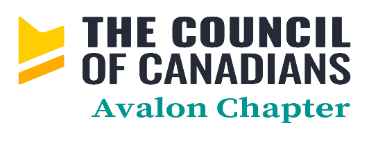|
We wrote to government awhile back urging them to introduce a ban on plastic bags and explaining why any temptation to go with a 5 cent surcharge on bags (either mandated or voluntary) would seem to be an inadequate response.
Below is a copy of this letter. ......................................... Dear Minister Letto, Re: NL survey results you may find interesting comparing a ban and levy on single-use plastic bags Last week the Telegram reported that government was close to reaching a decision about how to address our plastic bag waste problem. That’s good news given that we consume more than 100 million single-use plastic bags every year in this province. As government’s own report revealed, these bags do not get recycled. They end up polluting our land and sea and poisoning the wildlife that live there. It seems apparent to us that there are two very different approaches government can take to address the problem. Municipalities NL has requested a province wide ban on single use plastic bags. The business sector, on the other hand, is much more likely to prefer a modest five cent levy or rebate on every plastic bag shoppers use. There’s even a precedent for that. Walmart already has a five cent levy in place, while Colemans uses a five cent rebate incentive. Before you make your decision we thought you might be interested in the results of a visual survey of plastic bag use our groups have recently done at the four Walmart and three Coleman stores on the Avalon. We already knew from our previous survey of 17 Dominion and Sobeys supermarkets across the Avalon that approximately 84.5% of these customers were still using only plastic bags. What we discovered was that Colemans’ rebate scheme made a difference of less than two percent to those statistics. On the other hand, in our Walmart survey of 566 customers, we found that approximately 67.3% of shoppers were using plastic bags. That’s a reduction of 17.2%, which may sound okay until you do the arithmetic. If 84.5% of shoppers consume over 100 million bags each year, 67.3% will still be consuming nearly 80 million bags annually. That’s hardly a solution. The problem isn’t the levy as such. It’s that the amount appears to be too small to change people’s habits. There’s ample evidence of that from jurisdictions around the world. It’s why PEI, which announced last June a ban on plastic bags to be eased in over an 18 month period, coupled their ban with a starting levy of 15 cents per bag followed by a 25 cent levy one year later. The levies are initially necessary for customers who forget to bring their reusable bags to stores. We would like to see government follow the PEI example. Unlike other plastic waste problems which can involve inter-jurisdictional cooperation, an NL ban could be administered unilaterally by the province at minimal cost. But there are two much more compelling reasons for following through with a ban. Waste collection in this province is a municipal responsibility. From a practical perspective that means that Municipalities NL know what they are talking about when they say there is a need for a ban. From a democratic perspective, Municipalities NL also represents councillors elected by, and thus serving, the same population that elected our provincial government. In a healthy democratic society that should give their request enormous clout. It’s our opinion that a levy alone, especially if it’s a small one, will neither substantially change consumer habits nor resolve our plastic bag trash problem. It will, however, keep the corporate sector reasonably happy. That seems to us to be a short-sighted reason for adopting this approach. We urge government to make the right decision for our province. There’s a lot at stake. The Council of Canadians, St. John’s Chapter [email protected] The Social Justice Cooperative [email protected] Cc: J. Chippett, Deputy Minister
0 Comments
Leave a Reply. |

